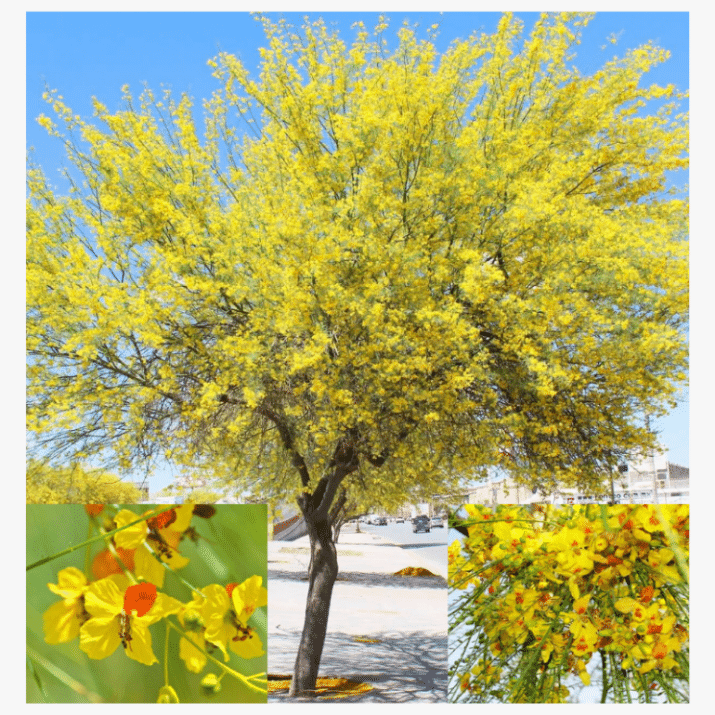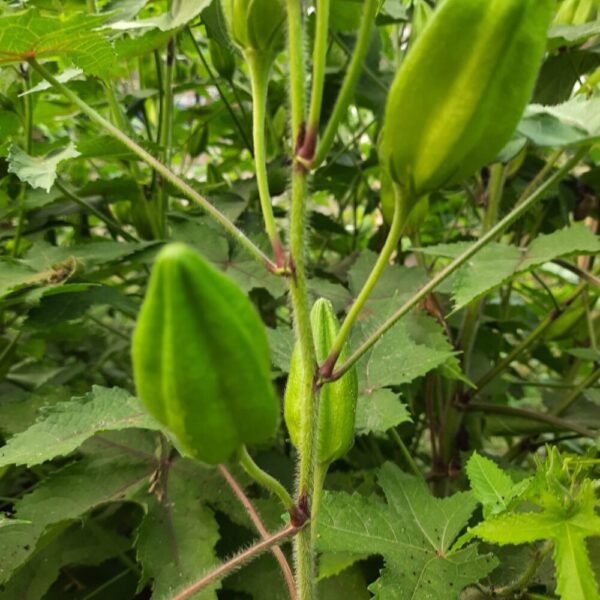Jerusalem Thorn (parkinsonia Aculata)
₹100.00 Original price was: ₹100.00.₹50.00Current price is: ₹50.00.
Jerusalem Thorn (Parkinsonia aculeata) is a striking and resilient tree that plays important roles in both its native and introduced ranges. While it offers benefits such as shade, erosion control, and ornamental value, its potential to become invasive in non-native regions requires careful management.
Out of stock
Jerusalem Thorn (Parkinsonia aculeata), also known as Mexican Palo Verde or Retama, is a species of flowering tree in the legume family (Fabaceae). It is native to the southwestern United States, Mexico, Central America, and parts of South America. The tree is known for its striking yellow flowers, delicate foliage, and spiny branches.
Characteristics:
- Appearance: Jerusalem Thorn is a small to medium-sized deciduous tree that typically grows to about 6-8 meters (20-26 feet) in height, though it can occasionally reach up to 10 meters (33 feet). The tree has a distinctive green bark, which is capable of photosynthesis. The leaves are pinnate, with tiny, bright green leaflets that give the tree a delicate, airy appearance.
- Thorns: As the name suggests, Parkinsonia aculeata has thorns, which are found on its branches and sometimes on its trunk. These spines can be up to 2 cm (about 0.8 inches) long, making the tree difficult to handle and providing a natural defense against herbivores.
- Flowers: The tree produces beautiful, fragrant yellow flowers, typically in clusters. Each flower has five petals, with one petal often streaked with orange or red. The flowers are followed by seed pods that are narrow and elongated, containing several seeds each.
Habitat and Growth:
- Native Range: Jerusalem Thorn is native to the arid and semi-arid regions of the southwestern United States (such as Texas and Arizona), Mexico, Central America, and South America. It is well adapted to hot, dry climates.
- Cultivation: The tree is often planted as an ornamental plant in gardens and landscapes, especially in areas with similar climates to its native range. It is drought-tolerant and can grow in poor soils, making it a low-maintenance choice for xeriscaping (landscaping that reduces or eliminates the need for irrigation).
Uses:
- Ornamental Plant: Parkinsonia aculeata is widely used in landscaping for its attractive flowers, delicate foliage, and overall aesthetic appeal. It is often planted in gardens, parks, and along streets in arid and semi-arid regions. The tree’s ability to tolerate drought and poor soil conditions makes it a popular choice for areas with low rainfall.
- Shade and Shelter: The tree’s spreading canopy provides shade, making it useful in hot climates for creating cool spots in gardens and public spaces. It is also sometimes used as a windbreak in agricultural areas.
- Traditional Uses: In some cultures, parts of the Jerusalem Thorn tree have been used in traditional medicine, although specific uses vary depending on the region. For example, the leaves and bark have been used for treating fevers and other ailments.
Challenges and Management:
- Invasiveness: In some regions where it has been introduced, Parkinsonia aculeata has become invasive. It can spread rapidly through seed dispersal and form dense thickets that outcompete native vegetation. This is a particular problem in parts of Australia, South Africa, and some Pacific islands, where it has been listed as an invasive species.
- Control Measures: Managing the spread of Jerusalem Thorn in areas where it is invasive typically involves mechanical removal, herbicide application, and, in some cases, biological control methods. Control efforts aim to prevent the tree from overtaking natural habitats and agricultural lands.
- Thorns: The presence of thorns on the tree can make it difficult to handle and maintain, and the spines can pose a risk of injury to people and animals.
Environmental and Ecological Impact:
- Erosion Control: In its native range, Parkinsonia aculeata can play a role in preventing soil erosion, particularly in arid regions where vegetation cover is sparse. The tree’s deep root system helps stabilize the soil.
- Habitat: The tree provides habitat for various birds and insects, especially when it flowers. However, in areas where it is invasive, it can displace native species and disrupt local ecosystems.
- Drought Resistance: The tree’s ability to survive in dry conditions makes it an important species in its native habitat, where it contributes to the ecosystem’s overall resilience against drought.
Cultural Significance:
- Symbolism: In some cultures, particularly in Mexico and the southwestern United States, the Jerusalem Thorn tree is culturally significant and is associated with the arid landscape of the region.
- Names: The name “Jerusalem Thorn” is somewhat misleading, as the tree is not related to Jerusalem or traditional thorn bushes. The name likely derives from its thorny nature and possibly its use in biblical landscapes or its resemblance to plants mentioned in religious texts.
Jerusalem Thorn (Parkinsonia aculeata) is a striking and resilient tree that plays important roles in both its native and introduced ranges. While it offers benefits such as shade, erosion control, and ornamental value, its potential to become invasive in non-native regions requires careful management.
| Weight | 15 g |
|---|
Related products
Terrace Garden Combo Pack
₹1,500.00Original price was: ₹1,500.00.₹1,250.00Current price is: ₹1,250.00. -17%Ash Gourd Big open pollinated vegetable seeds
₹60.00Original price was: ₹60.00.₹50.00Current price is: ₹50.00. -17%Red Yard Long Bean Gardening Seeds
₹120.00Original price was: ₹120.00.₹100.00Current price is: ₹100.00. -17%Musk Mallow Kasthuri Okra Seeds
₹150.00Original price was: ₹150.00.₹99.00Current price is: ₹99.00. -34%






Reviews
There are no reviews yet.